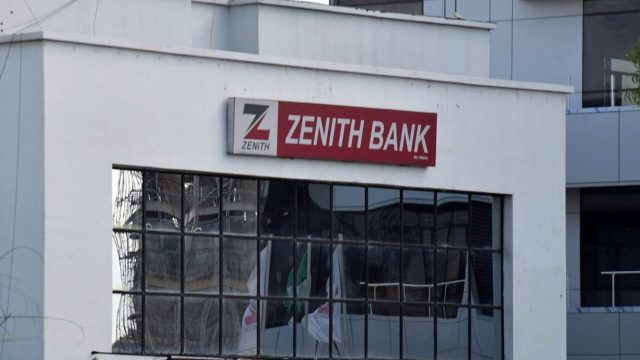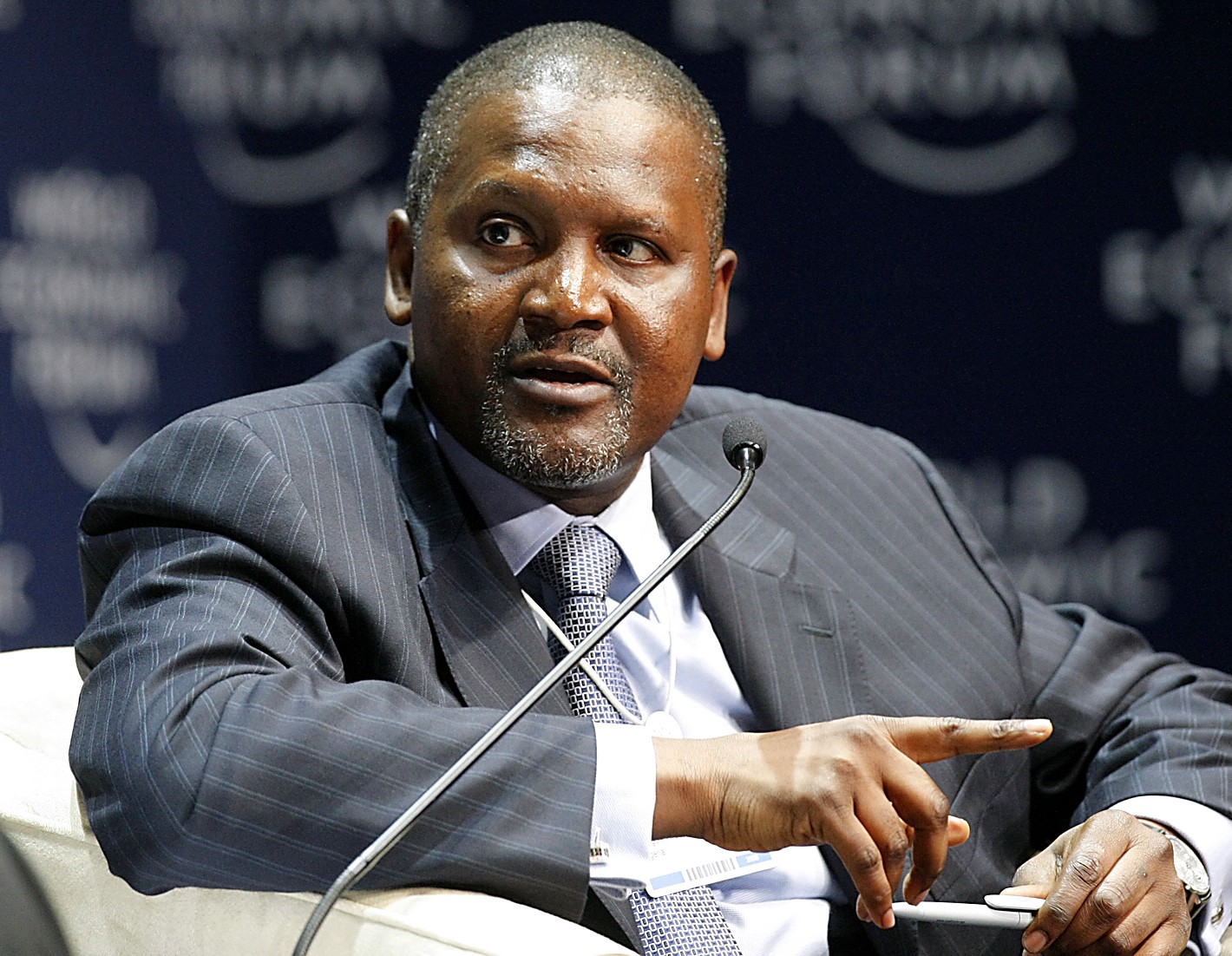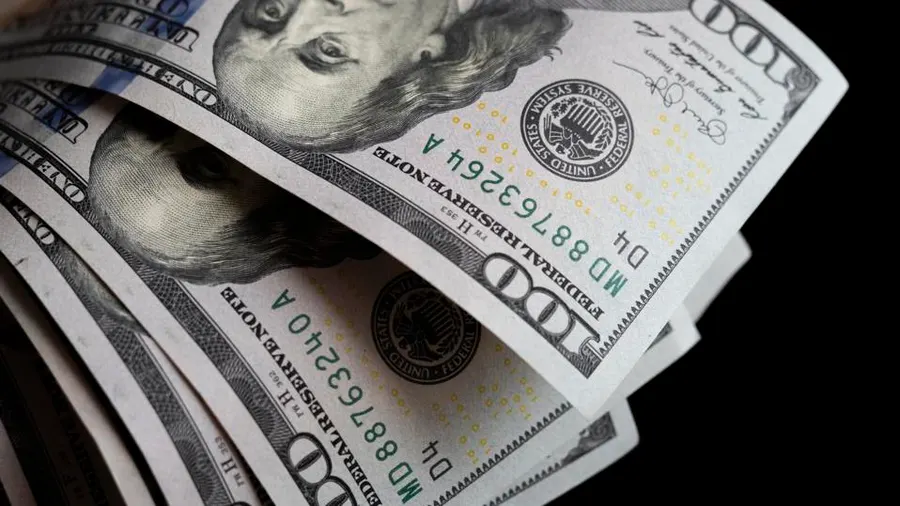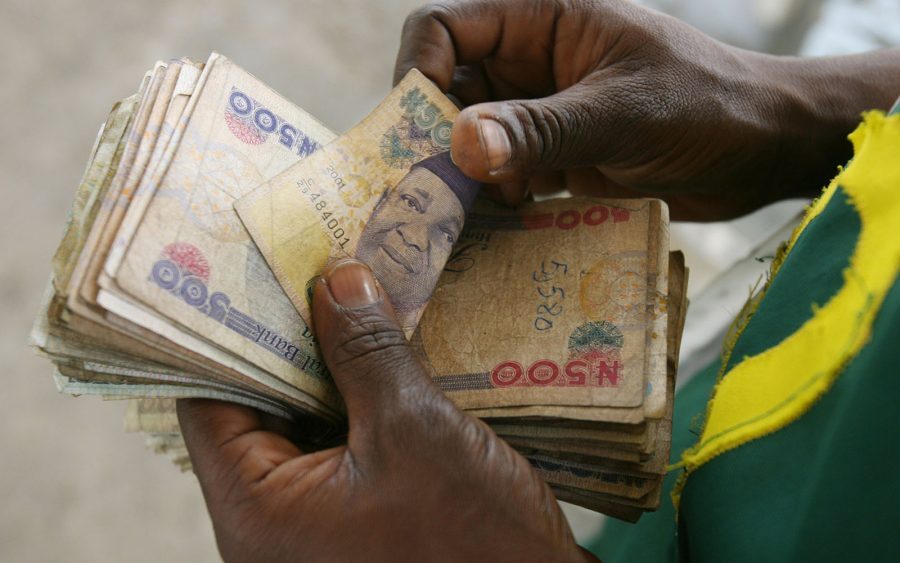Business
Zenith Bank Delivers Strong Q1 2023 Results With 41% Topline Growth

Zenith Bank Plc has announced its unaudited results for the first quarter ending 31st March 2023, with an exceptional double-digit growth of 41% in Gross Earnings, increasing from ₦191.5 billion in Q1 2022 to ₦270 billion in Q1 2023.
The unaudited statement of account submitted to the Nigerian Exchange (NGX) on Friday, 28th April 2023, indicated that the significant double-digit growth in the topline also boosted the bottom line, with the Group experiencing an impressive 27% year-on-year (YoY) increase in Profit Before Tax (PBT), rising from ₦68 billion in Q1 2022 to ₦86.6 billion in Q1 2023.
Profit After Tax (PAT) also grew by 13% from ₦58.2 billion to ₦66 billion during the same period.
The growth in the topline was propelled by substantial increases in both interest income and non-interest income.
Interest income surged by 52% from ₦126.4 billion in Q1 2022 to ₦191.6 billion in Q1 2023, while non-interest income expanded by 27% from ₦57.2 billion to ₦72.8 billion.
The growth in interest income can be attributed to the impact of risk asset repricing, while the increase in non-interest income primarily resulted from loan recoveries and foreign currency revaluation gains.
Regarding efficiency, the cost-to-income ratio improved from 55% to 53.4% in the current period, supported by a bolstered income line.
The cost of risk also moderated from 0.8% to 0.7% during the same period due to an enlarged loan book.
However, the cost of funding doubled YoY from 1.3% in Q1 2022 to 2.7% in Q1 2023, owing to a considerable spike in interest rates between both periods as interest expense grew from ₦25.8 billion in Q1 2022 to ₦70.8 billion in Q1 2023.
This impacted the net interest margin (NIM), which reduced from 7.3% to 6.9% over the same period.
Total assets expanded by 9% from ₦12.29 trillion in December 2022 to ₦13.36 trillion in March 2023, primarily driven by growth in customer deposits and other funding sources, such as borrowings.
Customer deposits increased by 2% from ₦8.98 trillion in December 2022 to ₦9.14 trillion in March 2023.
Loans and advances also experienced marginal growth of 1% from ₦4.12 trillion in December 2022 to ₦4.15 trillion in March 2023 as customers continued to adjust to the full impact of higher rates on risk assets.
Both the capital adequacy and liquidity ratios remained robust at 19.5% and 72%, respectively, with both prudential ratios comfortably exceeding regulatory thresholds.
In 2023, the Group will maintain its focus on sustainable growth across all business segments as it restructures into a holding company, introduces new verticals to its businesses, and expands into new frontiers.
Zenith Bank’s consistent record of outstanding performance has garnered numerous accolades for the brand, including being acknowledged as the Number One Bank in Nigeria by Tier-1 Capital for the 13th consecutive year in the 2022 Top 1000 World Banks Ranking published by The Banker Magazine.
The bank has also received the Bank of the Year (Nigeria) title in The Banker’s Bank of the Year Awards 2020 and 2022, as well as the Best Bank in Nigeria award for three consecutive years, from 2020 to 2022, in the Global Finance World’s Best Banks Awards.
Business
Nigeria to stop petrol importation in June, says Dangote

Aliko Dangote, Africa’s richest person, says Nigeria will stop importation of petrol into the country by June.
Dangote spoke at the Africa CEO Forum Annual Summit in Kigali on Friday.
He said the country should end petrol imports by June when Dangote refinery commences production of the product.
“Right now, Nigeria has no cause to import anything apart from gasoline and by sometime in June, within the next four or five weeks, Nigeria shouldn’t import anything like gasoline; not one drop of litre,” he said.
Consequently, Dangote said the shortfall in the supply of petrol will be addressed not only in Nigeria but other West African countries.
“We have enough gasoline to give to at least the entire West Africa. We have enough diesel to give to West Africa and Central Africa,” he said.
Dangote said there is enough aviation fuel to meet the continent’s demands, as well as export to Brazil and Mexico.
Speaking on the commencement of petrol production by the refiner, Dangote said “next month, we will be producing diesel and gasoline”.
He said the refinery would take most African crude grades.
DANGOTE SAYS REFINER WILL NOT FOCUS ONLY ON PETROLEUM PRODUCTS
Dangote said the refiner would not only focus on producing petroleum products.
“Today, our polypropylene and our polyethene will meet the entire demand of Africa and we are doing base oil, which is to do like engine oil,” he said.
“We are doing linear benzyl, which is raw material to produce LLB, which is raw material to produce detergent. We have 1.4 billion population and nobody is producing that in Africa.”
He said all the raw materials detergents are being imported into Africa, adding that the refinery is producing these raw materials to make Africa self-sufficient.
“As I said, give us three and a maximum of four years and Africa will not, I repeat, not import any more fertilizer from anywhere. We will make Africa self-sufficient in potash, phosphate (even if we don’t have enough, there is a lot in Morocco. But we are also looking at the opportunities,” he said
“For our urea, we are at three million tonnes and in the next twenty months, we will be at six million tonnes of urea which is the entire capacity of Egypt.”
The business mogul said the refiner has 650,000 barrels per day, one million tonnes of polypropylene, 590,000 carbon black — the raw materials ink, dyes and others.
Dangote said the second phase of the refinery will start early next year.
Business
Customs FX rate for import duties rises to N1,530/$

The Nigeria Customs Service (NCS) has adjusted the foreign exchange (FX) rate for import duties to N1,530 per dollar.
This represents a 6.13 percent increase compared to the N1,441.58 adopted on May 6.
The rate adopted by customs was observed on Friday on the federal government’s single window trade portal.
Customs typically adopt FX rates recommended by the Central Bank of Nigeria (CBN) for import duties based on trading activities in the official FX market.
It was observed that the NCS rate is marginally lower than the official FX rate of N1,533/$ recorded at the close of trade on May 16.
On May 15, the Nigerian currency depreciated to N1,550 against the dollar at the parallel section of the FX market.
The parallel FX rate declined by 1.95 percent compared to the N1,520/$ reported on May 13.
On May 16, Muda Yusuf, director-general, Centre for Promotion of Private Enterprise (CPPE), advised NCS to set a quarterly exchange rate between N800/$ and N1000/$ for import duties assessment.
Yusuf said the continuous fluctuation affects inflation.
He said setting a fixed rate was necessary to reduce the pass-through effect of heightening trade costs on inflation.
Business
Naira appreciates at parallel market, official window

The naira appreciated in the parallel section of the foreign exchange (FX) market on Friday.
At the Lagos street market, currency traders, also known as bureau de change (BDC) operators, quoted the naira at N1,510 to the greenback.
The traders put the buying price of the dollar at N1,480 and the selling price at N1,510 — leaving a profit margin of N30.
The figure represents an appreciation of N40 or 2.65 percent from the N1,550/$ traded on May 15.
At the FMDQ Exchange, a platform that oversees official foreign exchange (FX) trading in Nigeria, the local currency appreciated by 2.45 percent or N36.66 to N1,497.33/$ on Friday — from N1,533.99/$ on May 16.
During trading hours, an exchange rate of N1,555 to the dollar was the highest rate recorded and the lowest rate was N1,415/$.
At the official window, a daily turnover of $83.50 million was recorded.
On May 16, the Centre for the Promotion of Private Enterprise (CPPE) urged the Central Bank of Nigeria (CBN) to peg the exchange rate benchmark for computation of import duty between N800 and N1,000 per dollar — to be reviewed quarterly.
Muda Yusuf, CPPE’s director-general, said this is important to lessen the pass-through effect of heightening trade costs on inflation.
-

 Entertainment1 week ago
Entertainment1 week agoTems announces release date for her debut album ‘Born In The Wild’
-

 Religion4 days ago
Religion4 days agoAllow RCCG members attend your schools for free, Lege Miami tells pastor Adeboye
-

 Entertainment4 days ago
Entertainment4 days ago“My dating era has come to an end” – Actress Susan Peters shed tears of joy as she hints at remarriage
-

 Entertainment1 week ago
Entertainment1 week agoEsther Ogbu narrates how she once slept on the floor for seven days to avoid being sexually molested
-

 Business4 days ago
Business4 days agoSMEDAN begins disbursement of N5bn loans to SMEs
-

 News1 week ago
News1 week agoLagos state government introduces electronic system for 10-minute approval of building permits
-

 Celebrities4 days ago
Celebrities4 days ago‘Superstar no get money for car’ – Speed Darlington mocks Portable following his arrest (Video)
-

 Sports6 days ago
Sports6 days agoAmusan sets world leading record in 100m hurdles

















